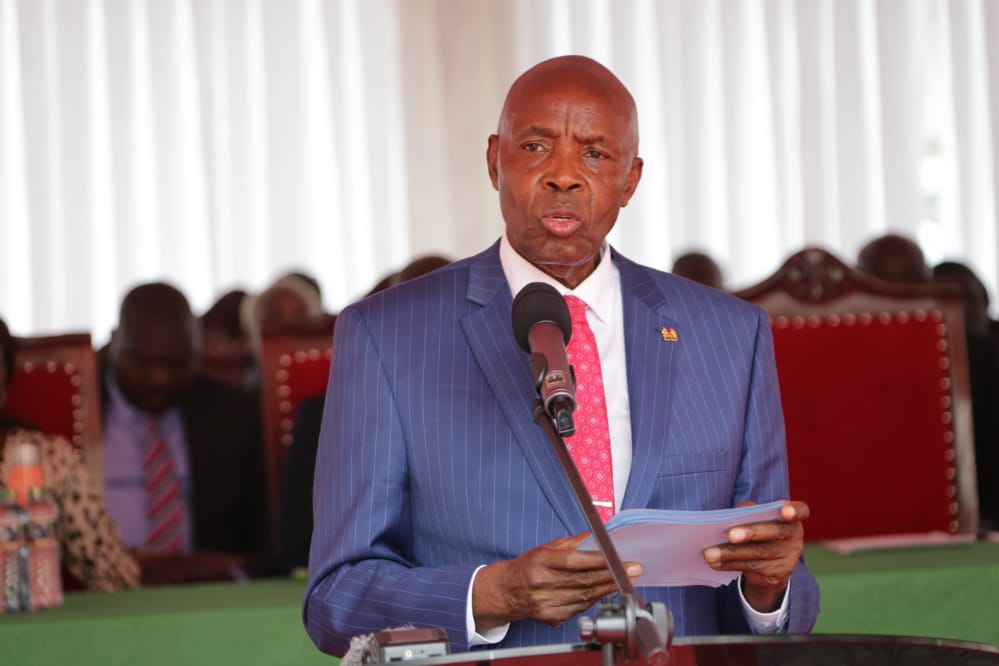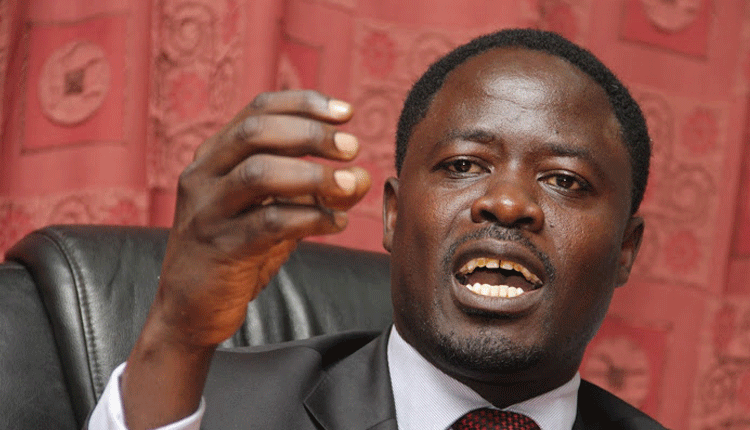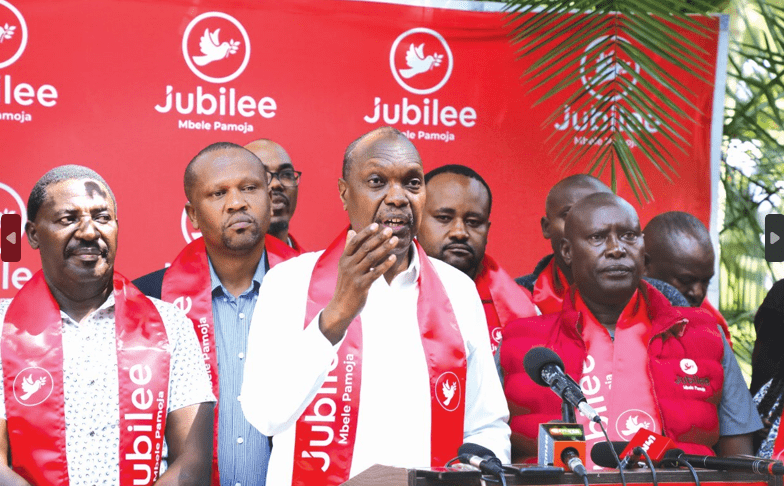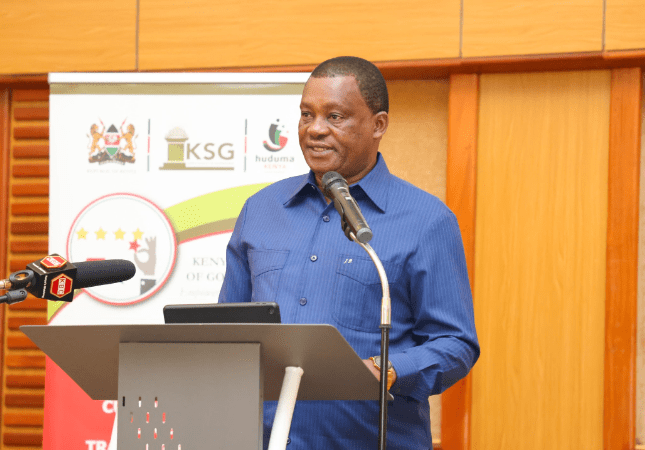Concern as number of pupils with over 400 marks drops

The number of candidates who scored 400 marks and above in this year’s Kenya Certificate of Primary Education (KCPE) examination reduced by 2,414 compared to last year.
Data released by the Kenya National Examination Council (Knec) shows that 9,443 candidates had 400 marks and above compared to 11,857 last year.
A similar drop was witnessed in the number of candidates who scored between 300 and 399 marks this year. While 307,756 are in that category this year, there were 314,785 in 2021.
The number of those who scored between 200 and 299 marks, however, increased this year to 619,593 up from 578,106 last year.
But those who scored between 100 and 199 marks decreased by 11,777 from 308,113 in 2021 to 296,336 this year.
Four points
There was also a reduction in the number of candidates who scored below 99 marks, from 1,170 last year to just 724 in this year’s examination.
Education Cabinet Secretary Ezekiel Machogu, who released the results on Wednesday, however said that overall performance improved compared to 2021 despite the difficult situation that faced this cohort of candidates.
“The marks of the highest candidate rose four points from 428 in 2021 to 431 in 2022. Another positive indicator of better candidates’ performance was in the mean average performance,” said the CS.
Some 10,438 registered candidates did not sit the exams this year compared to 11,523 last year.
For students with special needs, the number of those with 400 marks and above rose to seven from two in last year’s exam.
Those who scored between 300 and 399 marks were 296 compared to 337 last year while those with between 200 and 299 marks were 838, up from 778 last year.
The candidates who scored between 100 and 199 marks this year were 1,270 compared to 1,302 while only nine scored below 100 marks compared to 29 last year.
“I am impressed that seven candidates with special needs scored 400 marks and above compared with only two in 2021. The first candidate with special needs scored 419 marks more than the top candidate in 2021 who scored 417,” said the CS.
Baseline analysis
In total, there were 21,594 public schools with KCPE candidates while private schools were 6,814.
All the candidates who scored 400 marks and above will be expected to join national schools.
The Ministry applies the principles of merit, choice and equity in placing candidates to each school category, which saw 38,797 students placed in national schools, 214,960 to extra county, 218,456 to county, 726,311 to sub-county and 2,045 to SNE schools.
Machogu said he has subjected the sector to a quick baseline analysis with a view to finding an anchor upon which the government can roll out in its interventions.
Based on this analysis, he said some recommendations were made to raise the sector a notch higher.
Part of the recommendations, he explained, was anchoring the Ministry’s management on robust stakeholder consultations.
“As a Ministry, and working with key agencies, we will walk together with all sector players while embracing regular consultations and public participation in line with our Constitution. In this, we will take a cue from the example already set through the Presidential Working Party on Education Reforms, which has combed every part of our country to collect views from all Kenyans,” said the CS.
Execution desk
He also said the Ministry will double efforts to motivate staff for them to deliver better service.
“I promise to work with all stakeholders to ensure staff deployments, recognition and promotions are strictly based on merit and are carried out in strict conformity with Chapter 10 on Values and Principles of the Constitution,” he said.
“I am alive to the fact that regardless of how smart our policies will be, they will always be doomed to failure unless our implementing staff are motivated to work well, since they sit at the execution desks, and closer to the consumers of our services,” he added.
The CS said they were looking to working group’s recommendations about laws, policies and regulations in the sector.
“We have seen a number of attempts to amend some of the existing laws, policies and regulations, a few of which are currently pending before the National Assembly. Under my stewardship of the sector, we will carefully consult with all stakeholders with a view to driving the reform processes to a decisive and logical conclusion based on recommendations of the working party,” he said.
He urged respective committees of Parliament to be patient with the Ministry as it regularly seeks the legal and policy reforms.
Machogu said that most of the reforms will stem from the recommendations of the working party when it completes its work early next year.












